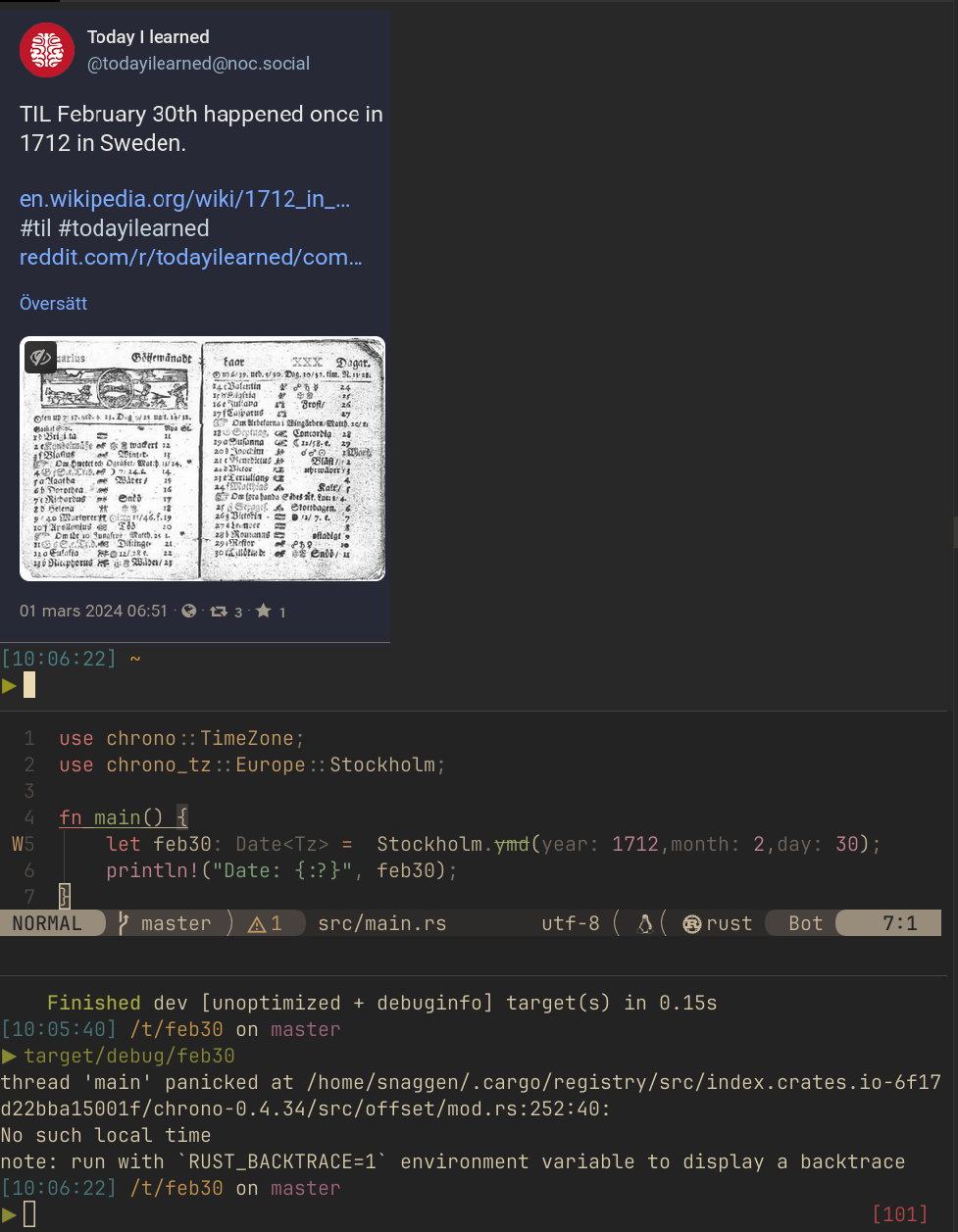snaggen
What I feel looks interesting with "on rails" is that you get things like database management built in, like setup, upgrades aso. Of course, this also means that it might be difficult to jump off the rails if you need that. And even if I feel like I'm not the target audience, since I prefer to pick and choose smaller libraries, I'm watching this with interest since Ruby on Rails seems to be quite popular.
Now when I look in to it, it seems that the things I would like to adjust is mostly formatting of imports, and most of these options seems to still be unstable.
I agree. I have written server software my entire career, and the need for performance is a corner case in my experience. The never crash in runtime aspect of rust should get much more attention (I know it can panic, but that really never happens in practice unless you use unwrap or smilar).
I also think the defaults are fine, so I was quite surprised to see 14% modify the settings. That is much higher than I expected.
It is always nice to see things progress in the IDE space, even though I must say that since rust analyzer have progressed a lot and JetBrains switched to Rust Rover, I use Rust Rover less now and NeoVim / VSCode more.
I actually asked chatGPT about a specific issue I had and solved a while back. It was one of these issues where it looked like a simple naive solution would be sufficient, but due to different conditions that fails, you have to go with a more complex solution. So, I asked about this to see what it would answer. And it went with the simpler solution, but with some adjustments. The code also didn't compile. But it looked interesting enough, for me to question my self. Maybe it was just me that failed the simpler solution, so I actually tried to fix the compile errors to see if I could get it working. But the more I tried to fix its code the more obvious it got that it didn't have a clue about what it was doing. However, due to the confidence and ability to make things look plausible, it sent me on a wild goose chase. And this is why I am not using LLM for programming. They are basically overconfident junior devs, that likes mansplaining.
This is obvious for people who understand the basics of LLM. However, people are fooled by how intelligent these LLM sounds, so they mistake it for actually being intelligent. So, even if this is an open door, I still think it's good someone is kicking it in to make it clear that llms are not generally intelligent.
That's why it felt very early to have used it before it was default, I mean before 2016 felt too early for me... But it was way before Covid, so I'd say around 2017.
